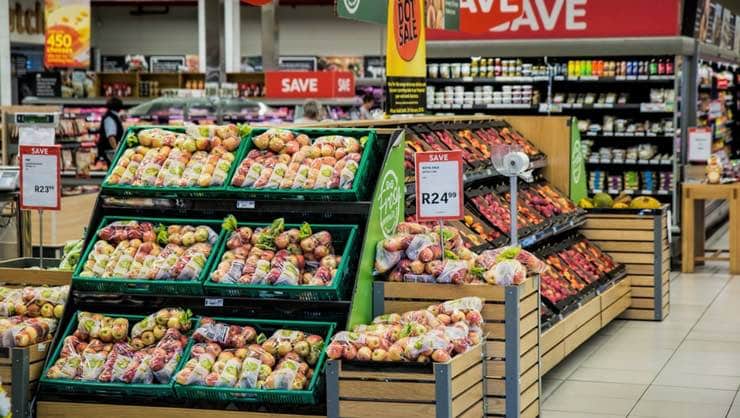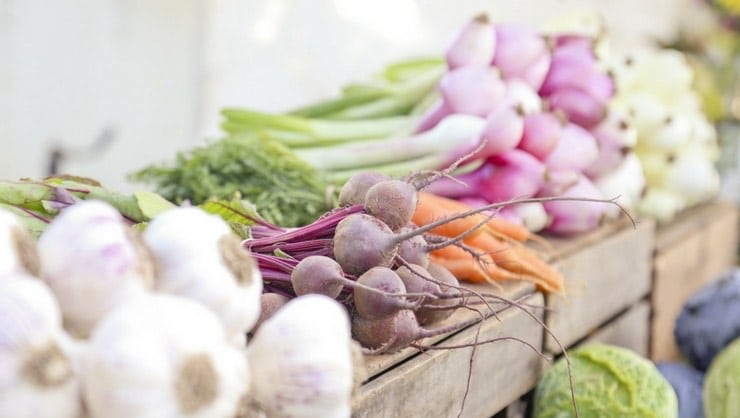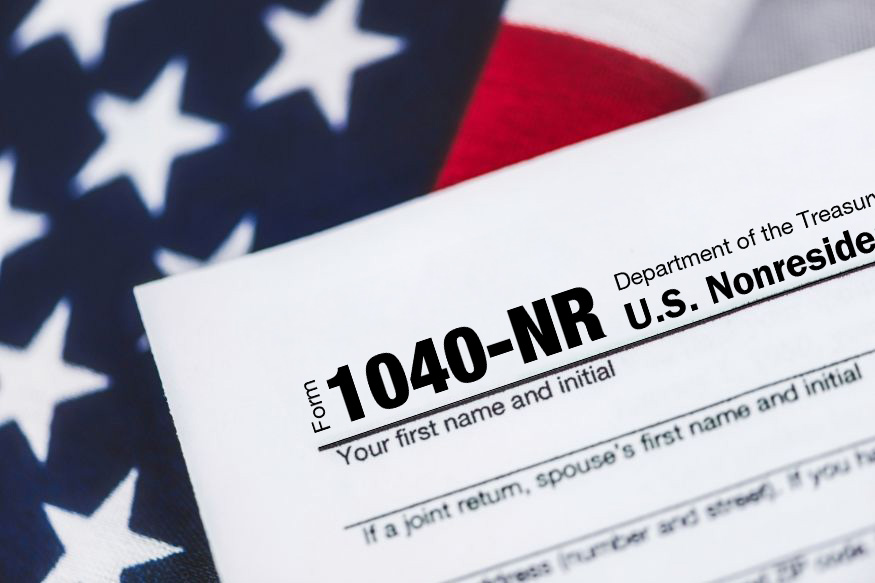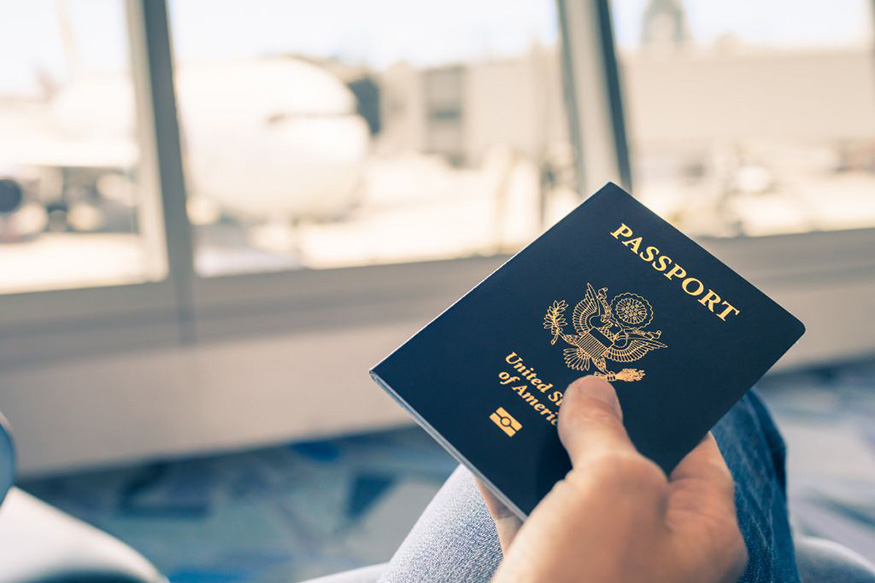Once you arrive in the U.S. you will see many shops and brands that might be new to you, so here is a brief guide to help you get started.

Image courtesy of Pixabay
Supermarkets
Supermarkets often vary by region within the U.S. and typically are fully stocked with all your everyday needs. Supermarkets are often quite large. Don’t be surprised if they stock items that you wouldn’t find in a supermarket at home!
National Grocery Chains
- Aldi
- Trader Joe’s
- Whole Foods
- Kroger
- ACME
- Safeway
- Carrs
- Randalls
You can also buy groceries at many large superstores.
Superstores
- Walmart
- Target
- Kmart
The prices, quality of the food, and the selection will vary, and you will get to know which places you like to shop quickly.
Different regions also have their own local chains.
New York
- Gristedes
- Food Basics
- D’Agostino’s
- Fairway Market
- Key Food
New York also has local corner shops often referred to as bodegas.
California
- Andronico’s
- Dehoff’s Key Markets
- Fresh & Easy
- Mayfair Markets
Southeastern U.S. States (North Carolina, South Carolina, Georgia, Florida, etc.)
- Piggly Wiggly
- Food Lion
- Busch’s
- Ingles Markets
- Publix
- Southeastern Grocers
Maryland, Delaware, New Jersey, Pennsylvania, New York State, and Connecticut
- Super Fresh
- McCaffrey’s
- Price Chopper
- Price Right
- ShopRite
- Shop ’n Save
- Giant Eagle
- Wegmans
The Midwest (Illinois, Indiana, Iowa, Kansas, Michigan, Minnesota, Missouri, Nebraska, North Dakota, Ohio, South Dakota, and Wisconsin)
- Hy-Vee
- Mejier
- Nash Finch Company
- Affiliated Foods
- Coborns
- Fareway
- Super One Foods
Convenience Stores
Convenience stores are great to pop into for little things like snacks and essentials. You can get coffee, soda, chips, sandwiches, and other items here!
Popular Chains
- 7-Eleven
- Turkey Hill
- Wawa
There are normally also convenience stores built into gas stations so that you can grab a drink and a snack as you pass through. There will also be local shops like this, so keep an eye out and learn the ones around your area.
Pharmacies
There are many national pharmacy brands that you will see all the time.
Pharmacy Chains
- CVS
- RiteAid
- Walgreens
- Duane Reade
These pharmacies will stock over the counter medications, band-aids, shampoos and conditioners, in addition to snacks, greeting cards, and various other odds and ends. There are also normally pharmacy departments in Walmart and Target. Outside of major cities, you can usually find a pharmacy either in a grocery store or right next door.
If you get a prescription from a doctor for medication, they will often give you a paper prescription to take with you or else call in the prescription to a local pharmacy of your choosing, where you will pick up your medication and pay for it.
Banks
Banks in the U.S. tend to operate a little differently than some banks abroad. Do some research into what banks will be in your local area to see what the best options are, and check out our guide if you’re looking to open an account! Banks in the U.S. charge a fee if you withdraw money from another bank’s ATM or cash point (in addition to the fee charged by the ATM!), so pick a bank that is close by and convenient for you. Banks sometimes also have annual fees for account holders, but these can often be avoided by setting up a direct deposit into the account or by opening a student account.
Common National Bank Chains
- Wells Fargo
- Bank of America
- Chase
- U.S. Bancorp
- Capital One
- PNC
- Citigroup
- HSBC
It might be a good idea to go with these big name banks because they are nation-wide and will likely have ATMs or cash points in your area, but do some research before you decide. Outside of major cities, you will find that smaller regional or local bank chains may actually be your only banking option in a small town or more rural location.

Image courtesy of Pixabay
Coffee Houses and Cafes
There are many chain cafes and coffee houses that you will expect to see.
Common Nationwide Chains
- Starbucks
- Dunkin’ Donuts
But you will likely see a coffee shop or cafe on every city street corner. These can be places where you relax and meet friends for a cup of coffee, a place where you eat a quick meal on the go, or a place that you set up for the day to work on your laptop. There will also likely be many independent cafes in your area, though, that you should try!
Fast Food Restaurants
One element of culture shock that you might encounter is the prevalence of fast food in the culture. There are certain chains that you will see that might also have a presence in your home country and you will probably some new ones, too. Fast food restaurants are prevalent and can make things easier for you, but it is a good idea to balance eating at these establishments with meals you cook at home. Note: You are not expected to tip at these establishments.
Major Chains
- McDonald’s
- Arby’s
- Wendy’s
- Taco Bell
- KFC (Kentucky Fried Chicken)
- Burger King
- Shake Shack
- In-N-Out Burger
- Five Guys
- Chick-fil-a
- Chipotle
- Dunkin’ Donuts
- Jack in the Box
- Domino’s
- Pizza Hut
- Panda Express
- Popeyes
- Noodles and Company
- Qdoba
- Saladworks
- Subway
- White Castle
- Panera
- Auntie Anne’s
Chain Sit-Down Restaurants
There are also many sit-down chain restaurants (you can also get take out) that you will see on the streets and in shopping centers in the U.S. At these restaurants, you would be expected to give a tip generally of 15%-20% of your total bill.
Common Chains
- Applebee’s
- Bahama Breeze
- Bennigan’s
- Bertucci’s
- Buffalo Wild Wings
- California Pizza Kitchen
- Carrabba’s
- Chili’s
- Cracker Barrel
- Dave and Buster’s
- Denny’s
- Friendly’s
- Hard Rock Cafe
- IHOP
- LongHorn Steakhouse
- Olive Garden
- Outback Steakhouse
- P.F. Chang’s Asian Bistro
- Red Lobster
- Red Robin
- Macaroni Grill
- Ruby Tuesday’s
- T.G.I. Friday’s
- Seasons 52
- Uno Chicago Grill
If you’re living outside of a major city, these national chains may make up the majority of your dining options, but also don’t forget to try the other local eateries in your area and to of course cook at home sometimes, since that can be a real money saver.

Image courtesy of Pixabay
Farmer’s Markets
In most major cities and also in some rural areas, there will be farmer’s markets that pop up in parking lots, in local parks, or along streets. Farmers from the area will set up stalls to sell fruits, vegetables, meats, cheeses, and even sometimes prepared foods. They often are only on weekends. These markets are often more inexpensive than supermarkets and have some great fresh foods, featuring whatever is currently in season. Do some research in your local area to see when and where these markets are in your area.
Community Supported Agriculture
This program, commonly known as a CSA or produce-share, is very popular in New York City. When you sign up, you pay a flat fee upfront for a season’s worth of produce. Then, each week or every other week (depending on the set up) you will be delivered fresh produce directly from a farmer in the local area. This is a great way to support your local community and also get some delicious seasonal fruits and vegetables.
It’s a good idea to look around on Google Maps at things in your future area so that you can get an idea of what to expect and find what will suit you in advance.




